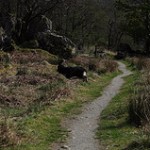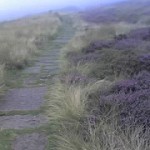
I mined these jewels from an article in The Guardian by Frank Cottrell Boyce and reset them: Continue reading


I mined these jewels from an article in The Guardian by Frank Cottrell Boyce and reset them: Continue reading

One of the features of a book worth reading is its voice. On panel events at festivals etc you will hear that publishers and agents are always seeking for a work with a distinctive voice.
What does that actually mean? Continue reading
(dedicated to the Music Room Poets and all my other creative friends)
In the last week I’ve been think about the core of things a great deal.
I thoroughly enjoy my belly-dancing classes and here we work on our cores so that we can do two contrasting things at once. It’s a little like patting your head and rubbing your belly at the same time. We might do snake arms as a slow and sinuous pace whilst shimmying our hips fast enough to make the coins on our hip-scarves jingle. Lots of concentration involved for me.
I also go to yoga – and core strength is central here too (pun intended). By engaging the core, you can develop flexibility, say, in bridge pose to loosen the spine safely – but you can also use it to increase your focus in a balance like tree pose. The key is not to force but to allow a posture to come.
This last weekend I was at West Dean for a magical poetry workshop led by Philip Wells. One of the themes I picked up on was the core of engagement with each other and our creativity. On one hand, I need to open up, allow myself to be vulnerable – but on the other hand, I have to respect my own truth as I do that of others. Somehow I want to show sensitivity to others without that horrible inhibiting self-censorship: that’s me back to doing two opposing things at once.
In my understanding , the physical core and the creative are intimately connected. It doesn’t matter if it’s dance, painting or writing novels. By sloughing off my outward shy and sometimes cynical outer shell, I can let something new, trembling but truthful emerge. It takes courage – ‘coreness’ – to do that ( I think of Chaucer and hir corages ).
How do you centre yourself?
Dragonfly
I crack my sternum:
The imago pulses,
A skin sinks in the pond.
K. M. Lockwood September 2012
by D.H. Lawrence
When you hear it languishing
and hooing and cooing, and sidling through the front teeth,
the Oxford voice
or worse still
the would-be Oxford voice
you don’t even laugh any more, you can’t.
For every blooming bird is an Oxford cuckoo nowadays,
you can’t sit on a bus nor in the tube
but it breathes gently and languishingly in the back of
your neck.
And oh, so seductively superior, so seductively
self-effacingly
deprecatingly
superior.
We wouldn’t insist on it for a moment
but we are
we are
you admit we are
superior.
I’m not scared of negotiating with the dead.
In this spectred Isle
There are ways of seeing memories
of the lost melted into air,
There are ways of seeing Mrs Hurst, dancing
on a cold mountain,
There are ways of seeing a headless horseman
through the mist in the mirror.
At the break of dark
in grey granite haunted houses
I hear a swift pure cry
and I breathe in.
I am the visionary on the secret path to
the shadowlands,
Calling a dead man and
writing down the bones.
‘Tis to die for.
K.M.Lockwood 2011
First off, let me beg you to buy some poetry. Don’t just download it, please. Poets have to eat, too.
Change from schoolmistressy voice to reflective.
Here are some poems you might like to try or revisit – the first few that sprang to mind which have a vague connection to the theme of home – and one of mine.
Might I suggest a little Gerard Manley Hopkins – “Inversnaid “? 
The heartfelt entreaty of “What would the world be, once bereft/Of wet and of wilderness?” speaks to me of the moorland that I love in my Yorkshire homeland. I studied GMH out of sheer perversity ( ‘The Wreck of the Deutschland’ with Miss Grey at Wakefield Girls’ High School) – and grew to love him. The intensity of his feelings, the texture of his words, almost crunchy in their concentration, and the sheer weird beauty of sprung rhythm.
Secondly, John Donne: “The Sunne Rising”. Another passionate priest. Hear the power of romantic love contemptuous of anything that distracts “Nor houres, dayes, months, which are the rags of time.” I like my Donne unfiltered, I hear him better through the original spelling: “saucy pedantique wretch”. Is there any better distillation of ‘home’ than being in bed with the one you love?
I have no qualms about reproducing this one on the same theme – I think the copyright’s well and truly gone!
O Western Wind
Anon, 14th century
O Western wind, when wilt thou blow
That the small rain down can rain?
Christ, if my love were in my arms
And I in my bed again.
Anon is a favourite poet – I cannot resist the bleakness of “The Lyke Wake Dirge” for one ( another bit of grim Northernness) – “Fire and fleet and candleleet and Christ receive thy soul” .
Being inside in foul weather seems to be a theme: I love “Wind” by Ted Hughes. Who can beat the directness of “This house has been far out at sea all night” ? It’s the vigour of his work that gets me. “The Remains of Elmet” with the haunting photographs by Fay Godwin is a much-loved book.
You will probably have guessed by now I like unsentimental nature poetry so George Mackay Brown, RS Thomas, John Clare and DH Lawrence get an honourable mention but Edward Thomas never fails to move me. His works are as delicate and deep as the etchings of Robin Tanner. I immediately thought of “Tall Nettles” – Asquith’s farm behind my home in Wakefield had a machinery graveyard I loved.
And to end with – a poem that I wrote which was published in the same anthology as two by Simon Armitage, no less. Only because we both had a Huddersfield connection at the time, I have to confess. Author’s Note: Ellis Laithe is a place, not a person (laithe is a Viking word for a barn, and shippon is dialect for a cow house).
To Ellis Laithe – a Conversation
Which way did you go?
Through a green gate sagging between stone pillars
Like a drunk between his silent friends.
What was in the garden?
Stacked slates drowning under nettle spires,
Snow-and-sulphur tongued flags just linger,
Like the crusted pear.
Some outbuildings;
Open mouthed coalscuttles,
Gagged with rosebay willow herb.
Anything new?
Only soaring thistles prickling the mothy air,
And the gaudy burnet clustered on them.
Some catpiss elders teem,
And flittering tortoiseshells snap shut,
On the hugely domed Fool’s Parsley.
Did you hear anything?
Only the arguing spugs’ echo in the dustrailed shippon,
And grit swilling down the gutter stone.
Who is in the house now?
A grasping bramble had crossed the doorstep, no more.
Did you see aught of mine?
In the kitchen, spiderstring nets cross the windowlight,
Falling through a stalactite-papered ceiling,
And in a mote-speckled spotlight lies
One single laceless crumpled boot;
A bleary sheen of mildew on the toe,
And the dark slit of a peeling heel
Distinguish it.
Goodbye old friend,
I’ll not visit there again,
Except in memory.
It would be best.
Rosemary Tate … from ‘An Anthology of Local Poetry’, Huddersfield Polytechnic 1985